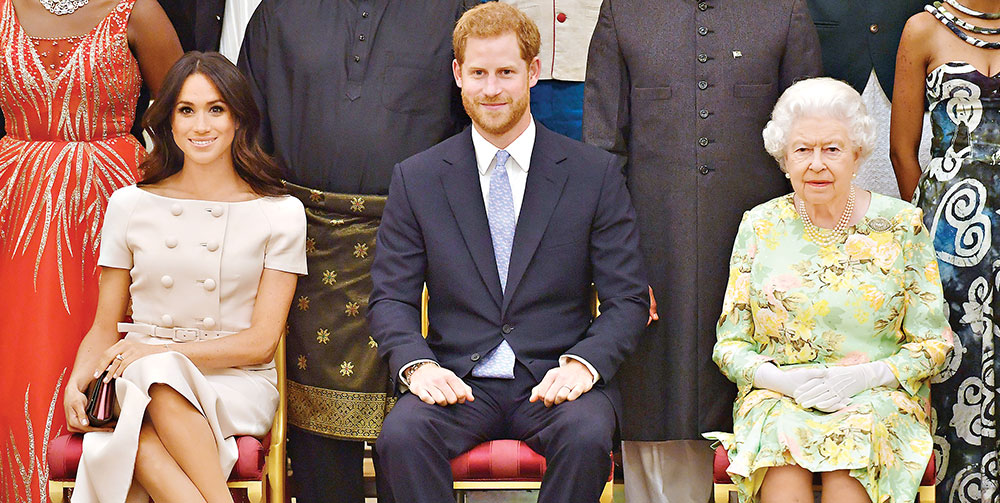ASIA’S ACQUITTAL WELCOMED IN UK
- 10 Nov - 16 Nov, 2018
The Netherlands Parliament has approved a ban on the burqa and niqab, and although the order is worded in such a way as to give the impression that this is only a partial ban relating only to places where it is deemed necessary to see a woman’s full face, in actual fact it means that women who do wear the burqa or niqab will have very few places outside their homes where they may wear it. The prohibition will, however, not ban the hijab covering the head up to the hairline, which can still continue to be worn everywhere.

The ban applies to public transport, educational institutions, health centres and hospitals and all government buildings. Although the ban does not pertain to the streets, yet police and security staff will be authorised to ask any burqa or niqab clad woman to take off the facial covering so that they may see the face. In effect, especially with women who use public transport, the ban may be seen as complete.
The number of Muslim women wearing niqab in The Netherlands is very small, perhaps a few hundred only, but the far right parties have celebrated the ban as the first victory over Islam, with one activist claiming this is the first step and that the next would be the closure of all mosques in the country. The Dutch claim that France and Belgium have even more extensive bans, and to make it all sound ‘religiously neutral’ ski masks and full face helmets have been banned as well, although no one would be mad enough to wear a ski mask and board a public bus or train.
The most likely effect of the ban will be that more women who do wear the burqa or niqab will now prefer to stay at home whereas the integration of such women into mainstream Dutch life would appear to be a leading priority.
Meanwhile, the crackdown on Islam in Austria takes a harsher turn with the government reported to be planning the shutdown of seven mosques and the expulsion of dozens of imams in a crackdown described as being against ‘political Islam’.
The country’s coalition government, formed of conservative and far-right figures, said the measures were “just the beginning” of a push against radical Islam and foreign funding of religious groups. Austria had passed a law in 2015 forbidding the foreign funding of religious groups. The country has about 600,000 Muslims, most being of Turkish descent.
And while the UK itself sits precariously on the edge of a hard Brexit, exiting the European Union with no deal and no transition period which will have catastrophic implications for trade, commerce, security, diplomatic relations, banking and a lot more, affecting the lives of everyone, the country is embroiled in a controversy concerning Meghan Markle, the newly wedded wife of Prince Harry, images of whose fairy-tale wedding are still fresh in most minds.
It appears that there is a particular way in which ladies are required to sit in the presence of Her Britannic Majesty, the Queen. Older women usually sit as straight as they can manage, with their legs also straight and close to each other. More recently, the style known as the ‘Duchess slant’ has been favoured with the late Princess Diana and now her daughter-in-law, Kate Middleton, the wife of Princess Diana’s elder son Prince William, favouring this posture. It requires the legs to be positioned at a slant and crossed at the ankles, combining gracefully both chic and formal respect for Her Majesty. Meghan Markle, not perhaps yet schooled in all the details, has been photographed in the presence of the Queen sitting with her legs crossed at the knees and then with one leg tucked under the other or, worse still hanging loosely in front, giving a picture of casual informality. This has not gone down well with many members of the public, mindful of any affront directed at the Queen, no matter however unwittingly. Articles have been written about it in the tabloid press and a discussion has started with fevered public involvement.
If this leaves you speechless about the priorities of a nation, rest assured you are not alone. While many are concerned with the way Meghan Markle sits in the presence of the Queen, business and union chiefs have issued one of the most serious warnings to date about the consequences of a hard Brexit. During a top level moot in Brussels, the Prime Minister Theresa May tried to divert attention from the actual issues at hand to the security issue, complaining that the EU attitude (the EU have said that in case of a hard Brexit, all security co-operation would cease) towards security amounts to playing with the lives of many, both EU and UK citizens. The EU leaders have pointed out that all that could be discussed if and when the UK tells the EU what it wants. And here is the crux for Mrs May’s Tory cabinet cannot come to any agreement on that, with views swinging from the sensible to the lunatic extreme. The Prime Minister will be holding a head banging meeting at her country retreat soon, but it seems at the moment that the lunatics have it. There is no solution even distantly visible on the question of the Irish border and unless that happens, the talks with the EU will go nowhere. But we have more important things to think about including how Ms Markle chooses to sit in the presence of the Queen, the successor to the Empire which, once upon a time, stretched from one corner of the world to the other. •
COMMENTS